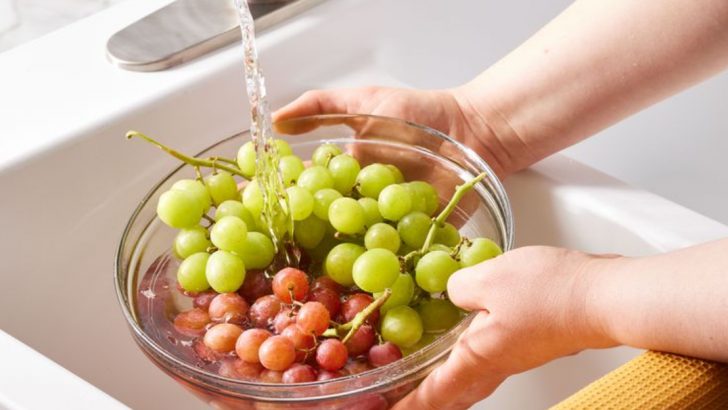Grapes rank among the most delicious fruits, but they often come coated with pesticides and wax that need proper removal before eating. Cleaning grapes thoroughly not only eliminates harmful chemicals but also enhances their natural flavor.
Whether you prefer them as a snack or use them in recipes, knowing the right cleaning techniques ensures you enjoy these juicy treats safely.
1. Salt And Baking Soda Scrub
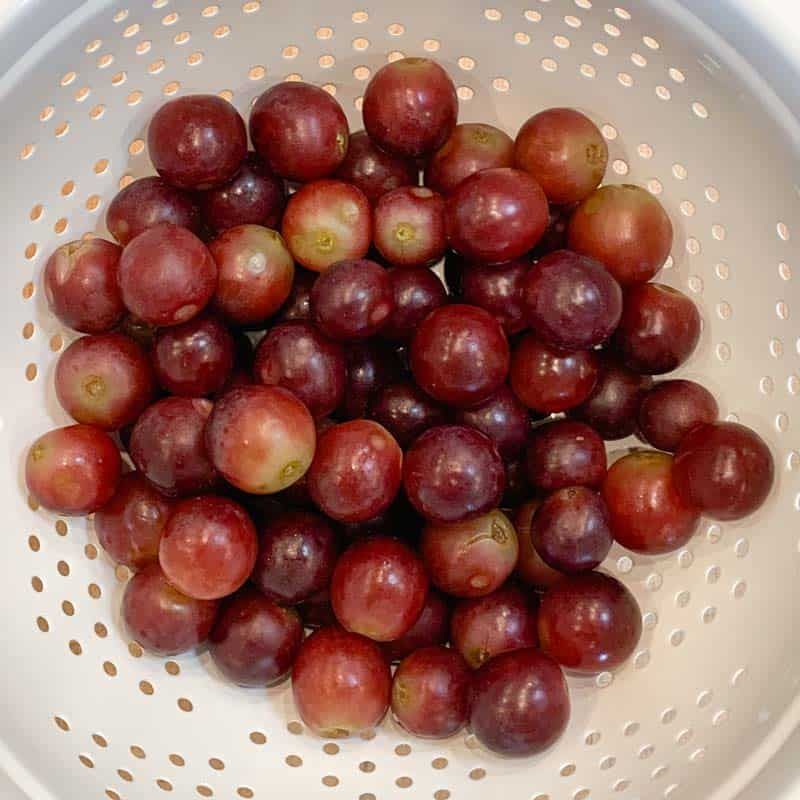
Forget complicated cleaning solutions! A mixture of salt and baking soda creates nature’s perfect cleaning agent for those stubborn grape residues.
Fill a large bowl with cold water, add one tablespoon of salt and one tablespoon of baking soda, then stir until dissolved. Submerge your grapes completely and let them soak for 5-10 minutes. The salt breaks down wax coatings while baking soda neutralizes pesticide residues.
2. Vinegar Soak
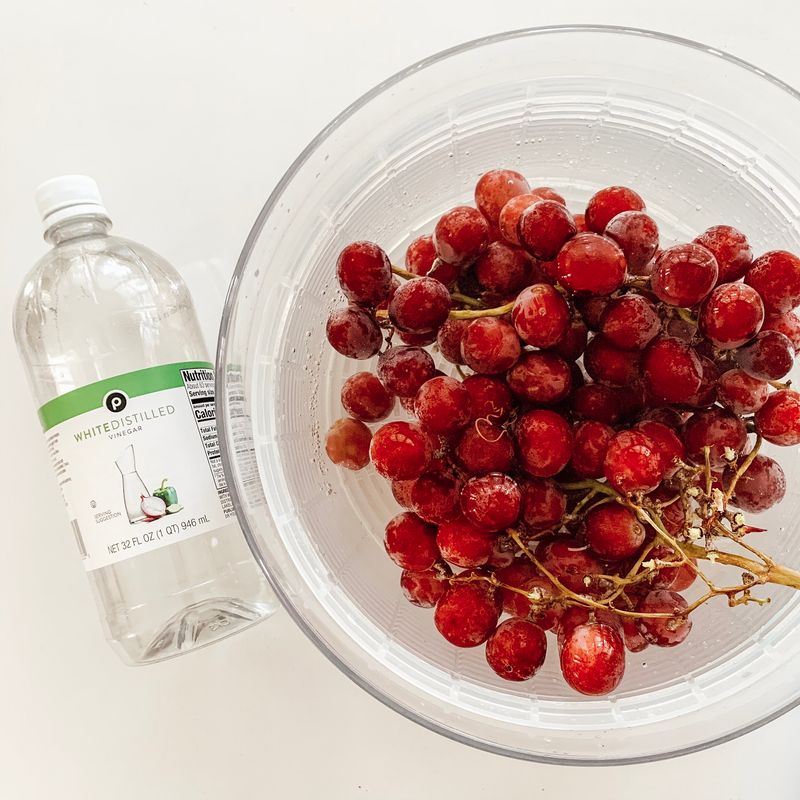
Vinegar stands as your kitchen’s unsung hero when battling grape contaminants. The mild acidity cuts through residues without damaging the delicate fruit skin.
Combine three parts water with one part white vinegar in a large container. Plunge your grape bunches into this solution and allow them to soak for approximately 15 minutes. The vinegar naturally disinfects the surface while dissolving pesticide residues.
3. Colander Rinse
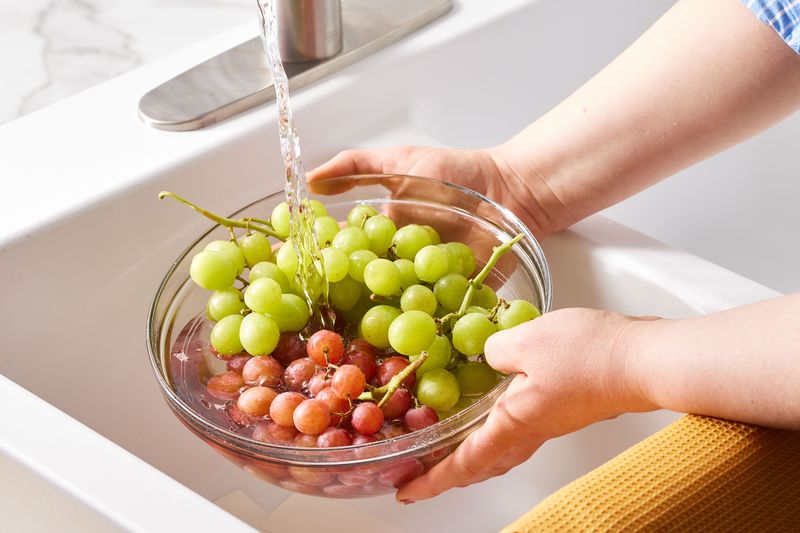
Sometimes simplicity trumps complexity. The colander rinse method requires minimal effort yet delivers impressive results for everyday grape cleaning.
Place your grapes in a colander and remove any damaged or moldy specimens. Position the colander under cool running water, rotating the colander to ensure all grapes receive a thorough rinse. While the water flows, gently rub the grapes against each other with your hands.
4. Bowl With Baking Soda
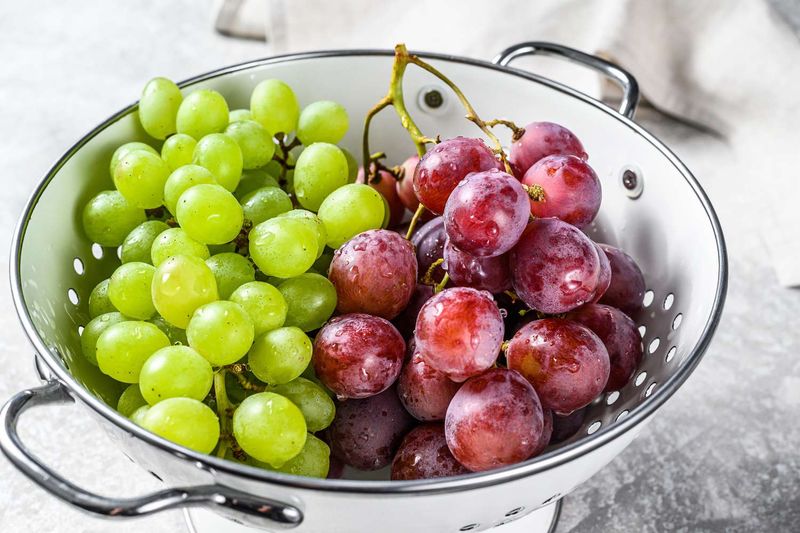
Baking soda alone performs wonders for grape cleaning. This gentle abrasive lifts away residues while neutralizing unwanted chemicals.
Fill a large bowl with cool water and dissolve two tablespoons of baking soda, stirring until completely incorporated. Add your grapes and allow them to soak for 15-20 minutes. The alkaline properties of baking soda work to break down pesticide residues and wax coatings.
5. Lemon Juice Soak
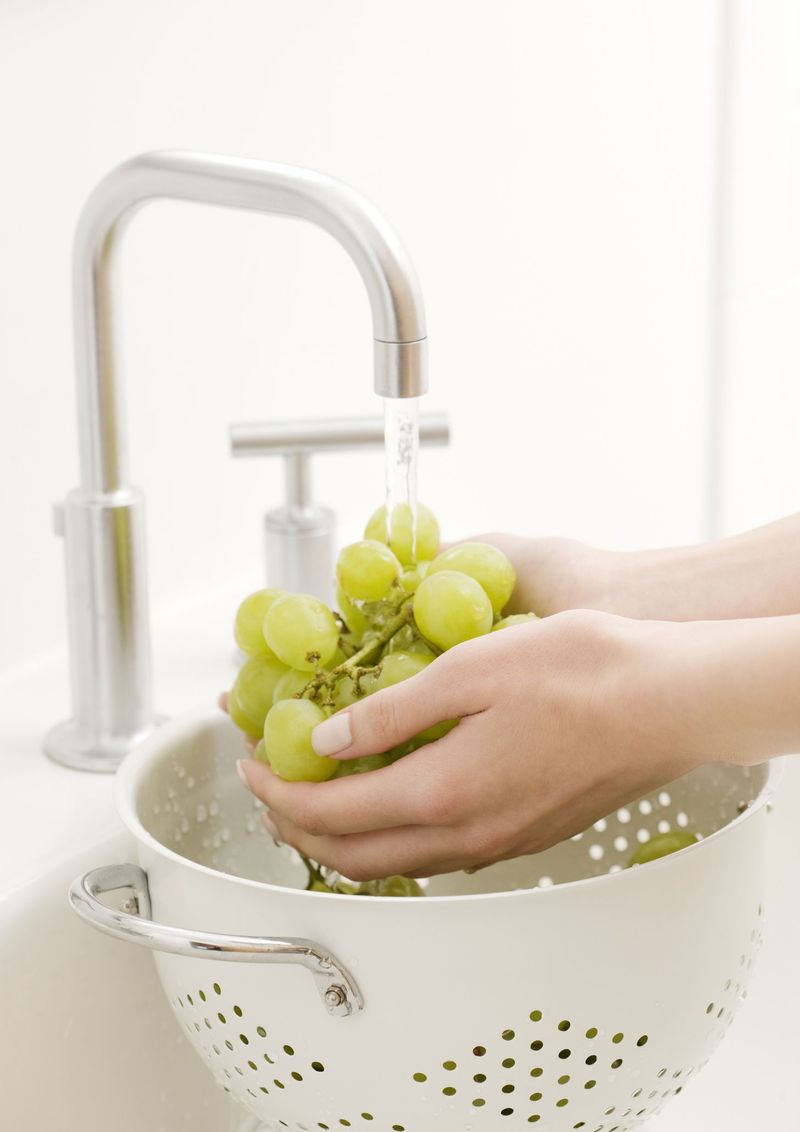
Lemon juice offers a fragrant alternative for grape cleaning. The natural citric acid acts as both cleanser and antimicrobial agent.
Squeeze the juice from two fresh lemons into a bowl of cold water, then stir to distribute the juice evenly. Submerge your grape bunches in this solution for approximately 10 minutes. The lemon acid helps dissolve waxy coatings while killing surface bacteria. After soaking, rinse the grapes thoroughly under cool running water to remove any lemon residue.

